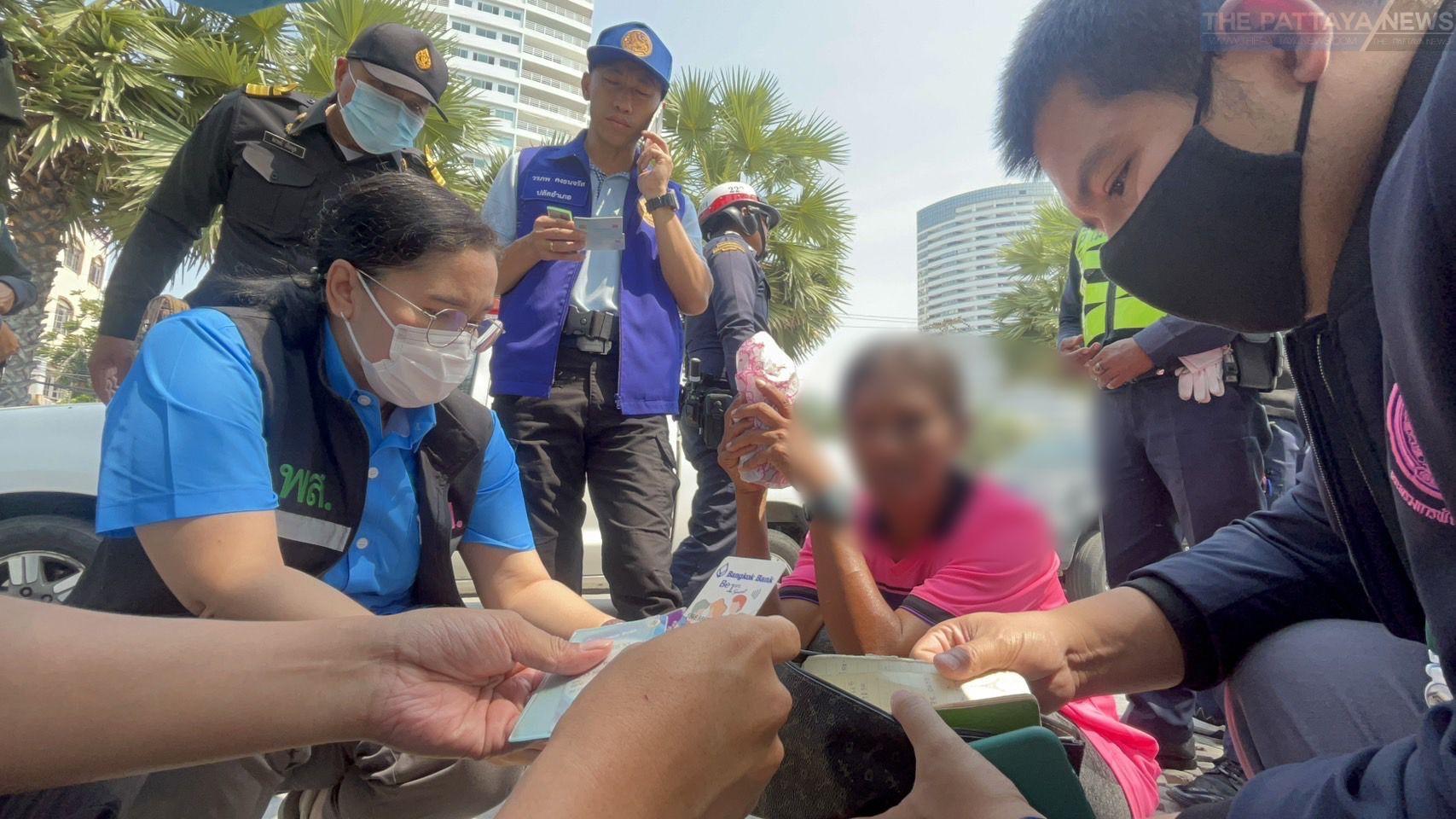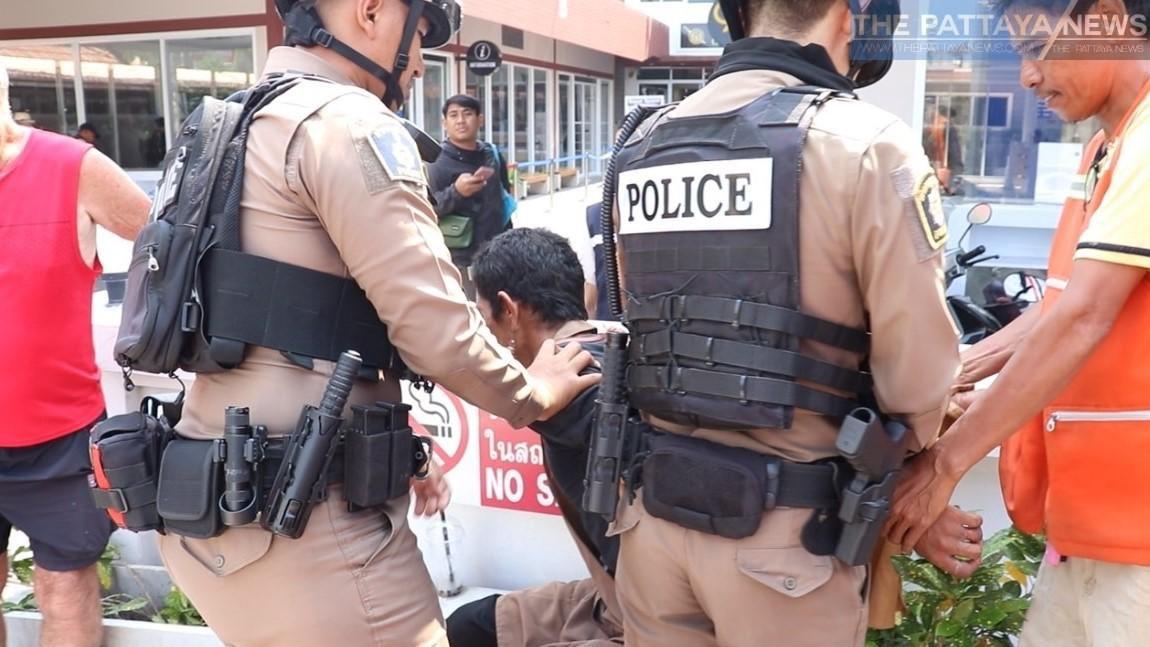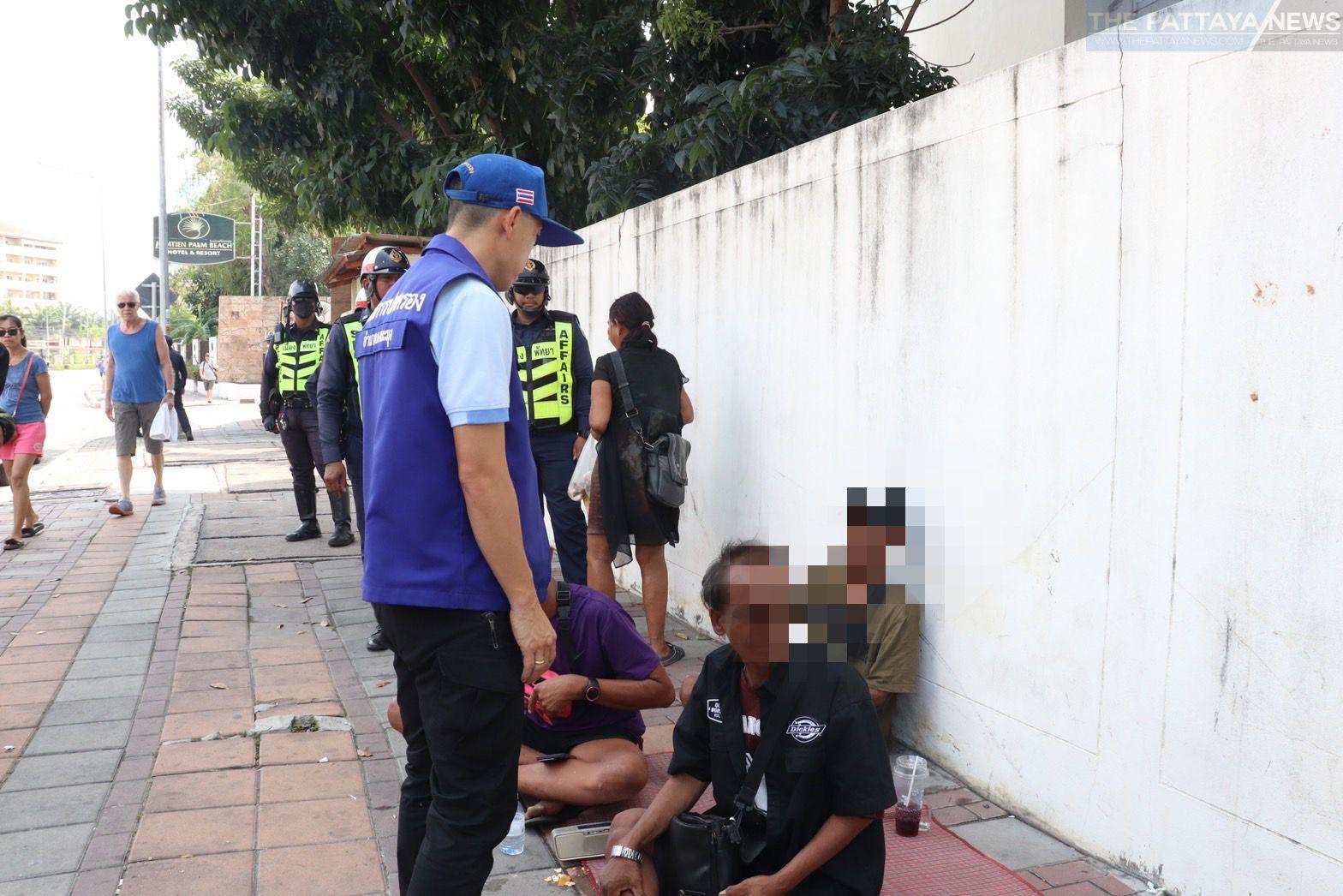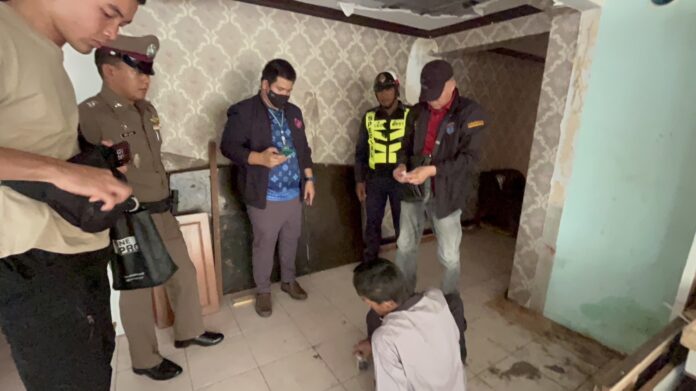Over the past several days there have been multiple news articles from us covering both complaints by local residents and tourists and relevant authorities responses to what appears to be a growing homeless problem in the Pattaya and Jomtien area.
For instance, just this past weekend fourteen Thai people were detained around Jomtien after numerous complaints of the homeless individuals being consistently drunk and on drugs and causing problems for people around Jomtien Beach. Six of them tested positive for illegal drugs.
Last week, multiple migrant beggars from nearby countries, some with young children, were arrested in Pattaya and found to be in the country illegally. There were also concerns about if the children had been trafficked and that was being investigated as of press time.
About a week ago, a mentally ill homeless woman lay down in the middle of the busy Pattaya Beach Road and was hit by traffic, getting seriously injured.
But, one must ask, what exactly should be done? There have certainly been a variety of proposals and thought processes and I will cover some of these below.
First, Chonburi does certainly have a Homeless Protection Center and they do perform a lot of work, contrary to belief, but like many homeless foundations around the world they can’t help those who don’t want help and are also underfunded in terms of budgets to assist those in need.

Generally, for Thai beggars, almost all of which are not from Pattaya and originally from Issan in the Northeast of Thailand, the Protection Center and local Chonburi officials offer the homeless a free bus ticket to go back home, where some, but not all, still have family.
A few homeless people do take up this offer but many others do not. After all, Pattaya, with its large tourist numbers, beaches, and comfortable environment (well, except for the seasonal air pollution but that’s a whole other topic) is certainly preferable to remote rural villages. It’s relatively easy for homeless people to beg for cash in Pattaya from tourists and when low on funds eat at local temples or get assistance from various charities.
So what happens after a homeless person refuses assistance? Although there are various Thai laws against begging and sleeping in public, jailing and fining homeless people usually doesn’t work according to officials so they generally try to just move the homeless “out of sight, out of mind”. This doesn’t usually work for long as, after all, it’s difficult to beg from tourists when one is in a secluded area. Quite frankly, many of the homeless are also mentally ill and addicted to drugs and alcohol and prefer drinking and partying on beaches and other public areas.
There are certainly no easy answers, although usually proposals are either to enforce laws against being homeless more strictly, essentially making the homeless criminals, or to try to get to the route cause of the problem and provide a path for those who are homeless to get back on their feet, get assistance for any mental health issues, get a job, and get a place to stay, even if it is a group home. This latter approach, of course, takes a lot more work than throwing homeless people in jail and requires a significantly higher budget.

For the migrants who are homeless, the majority are usually from Cambodia and deportation is generally sought as the first option. However, due to the porous borders and the ease of making money from begging in Pattaya (recently arrested homeless beggars said they made a thousand baht a day on average), many just illegally cross the border again and return. There are even some homeless foreigners in Pattaya who when eventually confronted by Thai authorities are usually deported if they find the funds to leave, but are often left alone if they cause no problems to society as filling the Immigration Detention Centre in Bangkok with people with no funds to pay for their flight home isn’t a solution either.

In the meantime, as tents can be seen popping up in some parts of Pattaya, even on sidewalks, it certainly drives a negative impression on many tourists. However, moving the problem out of sight by telling the homeless to stay away from the beaches and public areas doesn’t fix the issue and isn’t a long term solution.
We would like to note that in the opinion of our editorial team this isn’t the peak of homelessness in Pattaya, it was far worse during the eight month lockdown for COVID-19 in 2021. However, there were no tourists at that time and no job opportunities overall so it was a very different situation than the current one.
Pattaya is faced with some tough decisions on how to address what seems to be a growing problem and balance the homeless population in Pattaya without making them criminals while protecting the tourism industry and the safety of tourists.
What would YOU suggest to resolve the homeless problem in Pattaya? Tell us at Editor@thepattayanews.com.




